Building a Foundation in Pokémon: Part One
Over the next few weeks, I’ll be bringing you a series of articles explaining what I believe are some of the core concepts that you can use when playing in the Pokémon Video Game Championships. While I’m relatively new to VGC, I’ve been able to transfer my knowledge from other games and get up to speed quickly. I’m hoping to help you do the same. Even you consider yourself an expert on VGC, I strongly encourage you to read my series anyway, as it might help you understand why your gut is telling you to make a certain play.
Leveling
The concept of leveling comes from poker, but is easily transferable to VGC as well. It mostly refers to how deep someone’s thought process goes and how, if you can figure out which level they’re on, it can make decision making easier. However, it’s not that simple, as players are generally somewhere in between, so it should be used as a tool and not a harsh guideline. Just know that most players consistently play the same way and will rarely deviate, at least not wildly. If you can get inside their head and figure out what their goals are, you can probably infer what they are going to do next.
For simplicity’s sake, let’s say that all beginners are on level 0. All they are concerned about is dealing the most amount of damage as possible with little or no regard to what you could possibly do to. You could Protect, switch in to a more favorable matchup (taking a resisted hit in the process), or knock their guy out before they knock out yours.
As players get more experience, they begin to think about what their opponent is going to do and react accordingly. If their best play is to Overheat your Mawile, you should probably Protect, which would be a level 1 play. However, if you know your opponent, fearing an Overheat, is going to Protect, you should look for your best option.
Welcome to level 2.
The tough part is figuring out what level your opponent is on. If you make a level 2 play on a level 0 player, it’s not going to end well for you. There is some information that can be extracted by asking your opponent how long they’ve been playing or by analyzing their team preview. The only thing you have to be wary of is making a prediction based on what you think is a new player or sub-par team, as some people can surprise you.
For the most part, your opponents are going to be on level 1, and it’s generally safest to operate under that assumption until they prove otherwise. You should probably play cautiously until you have a reason to deviate, as making a wrong prediction is the easiest way to lose momentum in a match. For example, if you put them on level 2 and are actually on level 0 or just make what would be considered a level 0 play, you are in deep trouble. Over-predicting is one of the easiest ways to give up any edge you may have had.
At the higher skill levels, you will find that most players are on level 2. They are generally better at predicting what their opponents are going to do and are able to make better plays as a result. What truly separates the good players from the great players is that great players are not afraid to make a risky play. That said, being able to distinguish the difference between making a risky prediction when you absolutely have to from the times when it’s too much of risk to do so is also the mark of great player.
Scenario #1
Your opponent’s Rotom-W threatens your Rotom-H, but you know they know that. Since they assume you’ll Protect (and for the sake of argument, we’ll say it’s 2v2 so you can’t switch), you have a feeling your Rotom-H is not going to be targeted this turn. You seize advantage of this opportunity and get off a critical Will-O-Wisp while your partner is double targeted but Protects.
One of the easiest ways to get an edge in VGC is by leveling your opponents. In order to get ahead of them, you can figure out what level they’re on and think on a level higher than them. This is one of the reasons that Protect is such a heavily used move in VGC. Using Protect could be an article all by itself, but I’ll try to sprinkle in the various uses through the series as I go.
If you feel like you are on the cusp of figuring out when to deviate from level 1 to level 2, but end up ignoring your gut and going with the safer play, you need to stop and re-evaluate your decisions. Getting through an eight round swiss tournament is difficult, and you will likely not make it by making safe plays.
One of the most dangerous things you can do is play on auto-pilot. I realize the timer does not allow you to take several minutes to think through your rationale and a lot of decisions have to be made with instinct. However, you can practice thinking during your opponent’s turn evaluating why they did what they did. Hopefully that will speed up the process on your turn.
You have to keep in mind that the concept of leveling is probably more applicable to singles since there are less options available to each player, making it easier to pin down what choice they’re going to make. As I said earlier, using leveling as a starting point instead of a hard guideline for VGC is probably your best bet.
Risk/Reward
Sometimes you’re 99% sure what your opponent is going to do, but it’s incorrect to act on it because it would be the wrong play, regardless of the outcome.
Scenario #2
I had an Amoonguss at full health and a +6 Azumarill at a quarter health against my opponent’s Ferrothorn with a sliver of health and a full health Rotom-W. Considering his Rotom-W was being distracted by my Rage Powder-ing, Black Sludge Amoonguss, I had no reason to go after Rotom-W — Ferrothorn was the “obvious” target. Ferrothorn Protecting seemed obvious so I attacked the Rotom-W and lost my Azumarill to a Power Whip.
I tried to be clever and got punished.
From his perspective, what’s the risk with attacking with Ferrothorn? If I Aqua Jet it and he Protects, he’s still in the same situation next turn. At least by attacking he gave me a chance to make a mistake and I did. The reward for the play I made was that I would feel good about myself for being clever. The risk I made was that I would give up my checkmate, my +6 Azumarill would faint, and I’d potentially lose.
When debating any play, make sure you consider the risk/reward. What you think is the best play might be a more dangerous version of a more obvious, but safer play.
Scenario #3
I played against Bearsfan092 on the Nugget Bridge stream a while ago, which you can find here. For game three, I lead with Kangaskhan and Azumarill against Rotom-W and Mega Tyranitar. In one of our earlier games, he Protected with Rotom-W when I tried to Fake Out it with Kangaskhan and I predicted he would do the same here.
However, I had a plan that would hedge against him switching up his plays. He knew my general team strategy was to set up Azumarill with Belly Drum, so it wouldn’t surprise me to see him go for the Thunderbolt immediately, especially considering how our earlier games played out.
Because I felt like it was a possibility for him to Thunderbolt Azumarill, I chose to Fake Out the Rotom-W even though it might Protect. Also, instead of trying to set up Belly Drum, I went to Play Rough the Tyranitar immediately which would put it in range of Aqua Jet. If he wanted to Dragon Dance, he would likely have to Protect next turn and/or eventually switch out.
My play went fine even though his Rotom-W Protected, except that Tyranitar used Rock Slide instead of Dragon Dance. I was fine with that too since it didn’t deal too much damage and I was about to be in a commanding position.
Then Azumarill flinched.
Scenario #4
How many times have you led with Kangaskhan and Rotom, only for them to double Protect on turn one in order to skip the Fake Out turn? It’s a little risky considering you’re now free to double target something on the second turn, but it might be a better alternative than taking damage from a Fake Out.
As the Kangaskhan player, have you ever thought about Power-Up Punching your own Rotom in those situations? Sure, it’s one of the riskiest plays you can probably make in VGC, but the rewards are certainly there. I wouldn’t do it in every situation, but especially in best-of-three (or against the Charizard-Y/Venusaur lead, which will often double Protect on turn one in order for Venusaur to get the Chlorophyll speed boost on turn two), this might be something you could incorporate into your game.
Playing to Your Outs
Sometimes you’re trapped and the only way you can win is by double Protecting or maybe by double targeting when it’s super obvious but it’s your only way out. In those cases, playing to your outs is much better than accepting defeat. You won’t be able to capitalize on it a lot, but another mark of a great player is one who is able to turn around an almost impossibly lost cause into a potential victory.
My opponent in scenario #2 did this very well. He knew he wasn’t going to win unless he gave me the opportunity to make a mistake. If he Protected when I expected him to, I knew he most likely wasn’t going to get the second Protect and therefore would be free to attack. By taking away the transparency that would be there on later turns, he made it easier for me to make a mistake.
A common situation in VGC is having a Pokémon on your team like Ferrothorn (or something similar, like Substitute/Leftovers Aegislash) while they have Talonflame and three Pokémon that get walled by Ferrothorn. In that situation, KOing Talonflame and winning with Ferrothorn could be pretty easy. If they are conserving their Talonflame well, it might be best change gears and just play a normal game. Identifying your win condition is great, but only if that’s how the game is actually going to play out. Be careful of creating a false narrative just because it seems so easy in theory. After all, it’s your opponent’s job to not make it easy for you.
Scenario #5
I played a game a while ago where I was in a tricky situation. I had Charizard-Y alongside something else, but the something else wasn’t great and my opponent had the rain up from his Politoed. The specifics are a bit muddled, but I remember thinking, “This is a tough spot. What does the board need to look like in order for me to win this game?” Conventional means were clearly not going to win me the game, so I needed to find the answer and then figure out how to get there.
The answer involved me having Amoonguss alongside Charizard-Y with the sun up. Through some crazy Protects and switches, I was eventually able to make it happen. Thankfully, my opponent wasn’t trying to stop me from setting up the perfect end game because he was blind to that option. Instead, he was focusing on the game that was in front of him, and not the game I was trying create. Sometimes, identifying your win condition is equally as important as identifying theirs and trying to stop it.
A lot of this could be boiled down to “focus on what matters.” Leveling your opponents is great, as is sweeping their entire team with a Ferrothorn, but is that the best route to go with once you consider everything? Awkwardly enough, what matters tends to change turn to turn, and the timer doesn’t make it any easier on you. It’s important to have a game plan, but you must remain flexible and that requires a lot of quick thinking.
Scenario #6
In another one of my games against Bearsfan092, I found myself in a difficult position. He had Scizor and Salamence plus another Pokemon in the back vs my Azumarill with a sliver of HP and Garchomp. Both of his Pokémon pinned mine, so the only option I had was Protect Azumarill from Scizor’s Bullet Punch and Dragon Claw his Salamence, hoping to dodge his Draco Meteor.
It worked! However, I wasn’t out of the woods yet. Since I was Intimidated, Salamence didn’t get OHKOed, and I was in the same spot I was on the turn before, except this time I needed a double Protect with Azumarill and another Draco Meteor miss.
It didn’t work out, but it would 3.3% of the time. Are you willing to concede 3% of your games rather than play them out?
Scenario #7
You’re playing for top cut of a Regionals and you’re down 4-2. That said, you’re actually in pretty good shape. You’ve got a Salamence that’s burned (and taken damage once) and an Aegislash with a Substitute up against his Amoonguss with half health and Salamence (with a quarter health Rotom-W and Aegislash in the back). His Salamence is Choice Scarfed, but you’ve got a Haban Berry and Roost on your Salamence! You can easily tank a hit from Draco Meteor and heal it back with Roost while he drops to -2 special attack.
If this game goes on for a long time, you’re in a fine position to outlast your opponent and whittle him down.
Unfortunately, the timer is at under four minutes and the clock is ticking. To add insult to injury, some of your opponent’s Pokémon are shiny, wasting even more precious time off the clock any time they switch in. Your new enemy is the timer and the only way to beat it is to start KOing your opponent’s guys and quickly.
Your opponent is likely going to Rage Powder with Amoonguss and Draco Meteor your Salamence since he doesn’t know the particulars about your Salamence. If you don’t Roost this turn and his Salamence doesn’t faint, he will likely KO you with another Draco Meteor before you get to Roost. That would leave you at a 3-1 disadvantage and you probably wouldn’t be able to beat the timer.
So what’s your out here?
Is it totally unreasonable for your opponent to switch out Amoonguss on this turn and heal with Regenerator? He’s got to be thinking that his Salamence is faster than yours and will get the OHKO. Aegislash won’t be able to OHKO Salamence this turn, but it would likely KO Amoonguss from where it’s at. Also, switching and making use of Regenerator is probably going to burn off some valuable clock time, which would be great for your opponent.
Again, creating a false narrative is dangerous, as it can lead you down a dangerous path. However, I think you lose to time if you Roost and you lose to time if his Amoonguss stays in and Rage Powders, so I think assuming the Amoonguss will switch out gives you the highest chance of victory. It’s a slim chance, but it’s one you have to take.
***
This is currently slated to be a four part series, so make sure you check out the others. If I’m taking too long to put the next one up, feel free to bug me on Twitter!

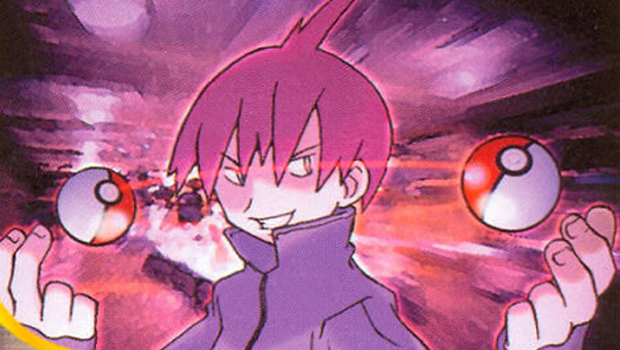
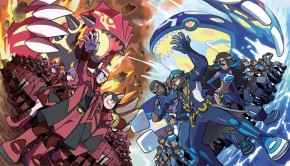
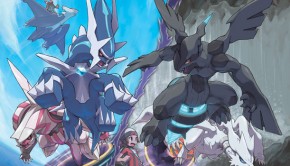

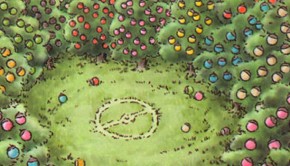
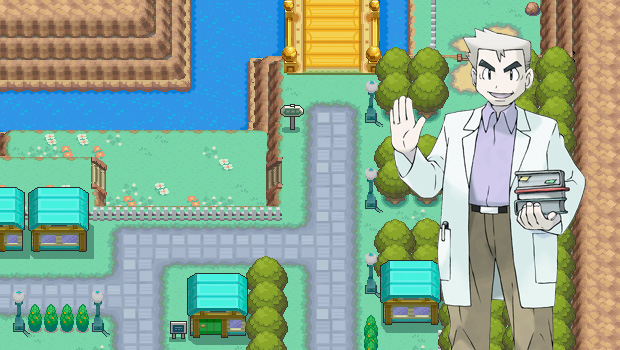




Having talked to you a decent amount over the past few weeks, you already know my thoughts about how great and accurate the article is. The last scenario rings a bit too true for me, it’s tough to play when you’re pinned down, but sometimes risky plays that rely on the opponent to make a mistake or two is all that is needed to completely change the game.
This article is the best one I’ve read in a long time. It’s very informative for both new players and experienced ones alike. If this is only part 1, I can’t wait to read the rest!
This article is beautiful. It explains the thought processes of so many good/great players in the game.
That last scenario is always the toughest, but you gotta take that risk.
Keep writing articles like this.
Wow, thank you for writing this. I always have a hard time knowing what exactly is going on in my head while I battle, but you have done such a good job of describing it.
Wow, fantastic article! I have to say that while I definitely have these types of things already hard-wired into my game, this is exactly the type of stuff new players need to hear. Except for maybe leveling, that’s a bit of a new one even for me! The idea that players always operate on the same level is fascinating, and definitely explain my lost to Collin in Madison swiss. Happy I could provide Scenario #7, but I must admit that I actually knew about the Haban berry and was trying to avoid a draco exchange! Still, this is such a good resource for players trying to claw their way to the top. Really looking forward to seeing how you progress as a Pokemon player and I think the community will love to have you!
I guess you’re pretty aware of what I think about this stuff already, but thanks for writing this, Gerry.
I hope reading this will help people learn to think a bit more. I think most people in this game understand the basic concept of leveling but don’t really analyze what exactly they’re doing, and by not doing so they make it much less likely that they’ll adjust and predict appropriately than if they looked at it a little more carefully. Even a lot of higher end players would probably be dramatically better at this game if they played a lot less on instinct and a lot more on planning the game as a whole instead of so much on individual turns. It is interesting to me when I talk to the handful of players who have a strong understanding of other turn-based games in VGC — even Angel with his Pokemon TCG seems to have a way better understanding of strategy than most VGCers — because there’s a lot of really important concepts to this type of game I think people have worked hard not to need to learn properly.
What’s funny to me about the lack of this sort of skill for most players is that pretty much everyone competent can do it on team preview. If someone is going X-2 at a Regional or whatever, they probably see team preview and go “Oh, this Pokemon is a big threat to my team, This Pokemon is probably their mega. I need to get rid of these Pokemon efficiently or I’m going to lose!” For some reason, that understand basically vanishes for most people after about turn 2. Few people seem to actually conserve their counters to those threats correctly when they see they could make positive trades that don’t actually help them progress to a win condition but put their own more important Pokemon at risk (or even put enough damage on them that they lose the ability to position properly). Fewer still spend the game trying to orchestrate strong board position for those counters to get free turns to either remove the threats, to use their matchup strength to bust holes in the enemy team, or to get free turns that let you switch and maintain that strong board position with other Pokemon they have that can exploit it better. That level of thought is even way before you even get to more complicated cases like scenario #5 where it requires a lot of deliberate planning and ability to find a situation that probably won’t occur in many battles. Too many players will just try to trade without a plan there and hope they magically end up ahead if they trade sort-of-well. Worse yet, because most of the time the other guy isn’t thinking that far ahead either, it works out too frequently for most people to learn.
Hopefully, this gets people thinking a little more. I know this is something I’ve found myself trying to reevaluate over the course of this year while I’ve been slumping a little bit compared to what I’m used to in the events where I did actually want to gain CP, and it should definitely be a helpful reminder or lesson for a lot of other players, too.
Great Article! This Article is like the theory behind the thought process every player does during battle! High quality content! Can’t wait to read the next! 😀 Thanks!
This ranks in usefulness of a deagle tip video where he teaches you how to drink water.
Do we really need to tell people that if they need to double protect to win, then they should double protect?
After bubbling 3 Regionals this season and crashing out of a fourth, I’ve concluded, among other things, that my thought processes, while adequate, need to take the next step to help me reach the next level. For example:
I had this situation against Primitive in Round 3 in Salt Lake City. I was using, I wanna say, Politoed and something fast, I think. It was a crucial turn in the game. He had a guy on his side that was somewhat frail and I could KO with Politoed, but could do damage to me if I left it unchecked. He also had another guy that was somewhat threatening as well. It took me 45 seconds to make the move, as I thought he was going to protect his more frail Pokemon that turn. I attacked the frailer Pokemon anyway because that was the “safer” play. Naturally, he protected that Pokemon and the other Pokemon got a free shot at my Politoed. I don’t know if I would have KOed his other Pokemon on a double target, but it would have kept the game more even. Instead, I ignored my gut, went for the safer play, and the game swung in his favor on that turn, leading to my first loss of the day.
Basically, I won’t reach where I want to be until I get better mentally. Articles like this are a big help to me as well as many other people on NB. It was also one of the best I’ve read on here in quite a while. Hopefully you keep writing these. I’m looking forward to the next one.
An intersting read. It gets me thinking and asking myself: What do I do in battles, what don’t I do in battles, and what I forget to do during battles.
good article
Very cool.
I think the most important things to take away from this is is that you always have to keep in mind that you will need to make the most difficult and gutsy plays to win consistently. Even if you know it already, it’s still very easy to convince yourself that your opponent is going to give leeway by making a mistake. This is a trap I always fall into.
Definitely an informative and interesting article, and I think this can definitely help in allowing a lot of people to improve, including myself. I can definitely relate to a couple of those scenarios that have been put forward, and can also think of a few others that are in the same frame of what your trying to communicate. I can safely say I have been guilty of not trying to plan out a strategy in a battle in order to work out a situation that works to my advantage, but there are occasions where I’ve managed to bring games down to suitable win conditions, although whether by luck or planning is another discussion altogether.
Hopefully this will help me personally improve, but I do look forward to seeing the remaining three articles. They will certainly be must reads!
Great article. I read your Magic articles for awhile on SCG and this isn’t new to me. When I made the hop to Pokemon I immediately started thinking about Level 0 vs Level 1 ans so on.
It has both helped and hindered me as in the only Regionals I attended I successfully caught the levels and came back from a game I was pretty far behind. I noticed my opponent playing a level above me and I started predicting everything. Two rounds later I over predicted my opponent and got ruined because of it.
It is great to see you producing content for pokemon now. Can’t wait for the rest of the series (even if it brings back ghosts of MTG content that has been around for awhile)
🙂
PrettyLittleLiar: Not everyone is as good as you and the game is much larger than just you. If you want the game to grow (and you should, as it means more tournaments, potentially more prizes, and more fish to prey on), then you should curb your attitude as it’s not very helpful for anyone, yourself included.
Was a huge fan of your articles on SCG, and it’s great to see your writing here on Nuggetbridge! Definitely looking forward to your future articles.
Great to have these foundations of strategy on the site, especially with the instructive scenarios. My Pokemon play definitely improved when I started considering some of this stuff, and I’m sure I could still incorporate it a lot more.
Welcome to the community! I’m looking forward to the rest of the series.
Really good points, Scott. I definitely recognize myself as someone whose level of play is currently capped by over-reliance on instinct. I think this is why familiarity with your team and with the metagame is so crucial, because with only 45 seconds to move and so much to think about, you really want to have as much of that thought done in advance as possible.
I think I tend to begin a match using instinct more and then gradually lean more towards planning as the match goes on and the limited options makes it easier to predict.
You’d be surprised.
This article reminded me of this:
Okay, serious time: as a guy who’s only ever played one game competitively, it’s interesting how concepts from other games like Magic translate very well into Pokemon. This article is very helpful: I feel like I needed to read this. I’ve been in a slump since January, especially when compared to how I was playing the six months before then. Part of it is that my teams have just been mediocre, but I think another problem is that for whatever reason, I haven’t been analyzing battles like how you describe in this article as I did in the last stretch of 2013.
Thanks for writing such a great article! Can’t wait for the next parts.
First of all, I really doubt anyone plays VGC for the prizes. If your only concern is prizes you are playing the wrong game. Second, I already think there are too many watered down tournaments and think pokemon should be about skill not who can attend the most events. Third, I get very little enjoyment “preying on fish” at VGC events. It is not fun beating a 15 year old kid who takes events much more seriously than I do.
Anyways, on to the point at hand, I think your advice is bad or blatantly obvious. How am I not being helpful by criticizing bad advice? I think I do a better service to the community by arguing your viewpoints and letting less experienced players know that just because someone publishes an article on NB doesn’t make it law.
By doing your avicii grimer your are telling people to over generalize moves. You want to make the best move regardless of what “level” people are on. Make the move that wins against every possible level the other player is on.
I fail to see how scenario 3 is an example of risk verses reward. Is fake out a risky play now? How many games do people just let you setup belly drum on azumarill? Why would anyone dragon dance on a tyrantar if they expect you to belly drum and ohko with aqua jet turn 2? That turn was an example where you should not play on whatever prediction level you think your opponent is on but rather just make the best move.
Telling new players to consider who they’re playing, how they play, and what they are thinking is the opposite of bad advice. Many new players come with a plan, stick to it regardless of who they are paired up with, and hope for the best.
It always makes me happy when people complain about their over predictions being wrong when they used concepts detailed in this article
Best written article on here for a long time.
For some reason the concept of ‘losing the battle but winning the war’ doesn’t exist in VGC …
This is a pretty good article overall but i can see people over-thinking or even under-thinking the points made in here, especially regarding predictions and levelling, so that when the next time they are in a precarious situation they will be fixed on trying to sound out the ‘best’ play to make when in fact there kind of isn’t one, only a couple of bad plays to avoid.
Nice piece, but there’s so much more to prediction and high level play. It’s a difficult topic to write on since, if you want to play to win, you have to learn how to and can’t have someone telling you. It’s a life skill thing, really, and there’s just too much to it to express cohesively. But hey, if this gets people thinking it’s done its job so good work.
Honestly I think that in general you see two main ways of how people at the top levels play
They either play defensively, ie thinking the game out as a whole rather than turn by turn, making sure that they control the game flow, and avoiding making overly risky plays. Best example I can think of offhand is Kamaal.
The alternate route is, by default, a much more aggressive style, which focuses on trying to read what your opponent’s move is likely to be based on whatever factors you can and responding accordingly, this generally involves more stuff like punishing switches and a much higher willingness to take risk if it comes with a larger expected value. Best example that comes to the top of my head is Mr. Bopper
While I think that it’s important that someone outright says that there are different levels of skill and that effects what plays you should make, it oversimplifies it a good amount, which is what people like PrettyLittleLiar are taking offense with.
This is a nice simple and pretty good beginner’s introduction to the game though, nice article Gerry
Interesting article. It’s been stated before me, but there are some concepts that can’t necessarily be “taught,” from an article and have to be experienced through trial and error, such as working on predictions. But your points, I feel, will be a great help to people who are interested in getting into VGC’s but are relatively unfamiliar with the VGC’s. But some of your points can be applied to well-seasoned players as well, so this is a pretty diverse article. Good job! I look forward to the next entry!
I never said my only concern was prizes, I was just pointing out that if the game ever gets to the point where the prizes are actually good then it will be good for you.
As for the “criticism,” I must have missed it in your first post. All I saw was you complaining.
Which I warned about in the article itself. Complaining about over prediction isn’t something you can really do since it’s your fault.
I agree RE: over and under thinking, which I warned about in the article. The article is meant to help you formulate a process for thinking about things, hence the article title itself.
Agreed! You need to actually play yourself and learn to think under those conditions.
I’m actually covering some of the stuff in your post for part two.
I agree that the article is an over-simplification but that’s going to be true about any article. It’s odd that that is the part PrettyLittleLiar takes offense to when his reason for why my article is bad is “You want to make the best move.”
Great article!
However, I find that time is the toughest opponent in Pokemon battles. I take absolutely ages to think, and 90 seconds in team preview and 45 seconds for move selections simply isn’t enough (for me). I tend to think of every combination the opponent can pull, then analyse all my options to determine what the best combination of moves I can use. Of course by then time’s up and the game just selects the first move you have in your slot. Or it just selects your first four Pokemon, which can be disastrous. For example in a recent loss of mine, during team preview I knew my third Pokemon was going to be dead weight, and I was deliberating between taking the fifth or sixth member both of whom would be good against the opponent depending on the Pokemon they picked. Unfortunately the timer ended and the first four team members got sent out. Since my fifth and sixth members were the strongest against that particular team and they both sat out, naturally I struggled and lost.
Also, there were times when my opponent did silly things like fake out on the second turn of battle, which I assume is because they ran out of time as well and the game just selected the first thing they had.
Your article is great at explaining the thought processes behind some the more advanced players, but I think only experience can speed up a player’s thought process during battle. It’s a fantastic read though, since those scenarios explain what a lot of players can do, and I often struggle to figure out what my opponent’s next move will most likely be.
Looking forward to more!
Awesome article, glad I read it all the way through! I refuse to read the comments though. ; P
Good read, hard to explain my thoughts on it, but this is really cool to see on the site; the poker mindset is something I’m sort of surprised we haven’t seen much of yet considering our game shares some concepts. I’m not sure how many people reading it will be able to practically apply it, but it’s always good to get people thinking.
Something that came to mind while reading that was lightly brushed in the article but not directly covered: tendencies. Do you plan on covering those in the future (what people, in general, tend to do vs you in certain situations, observed during long stretches of practice)?